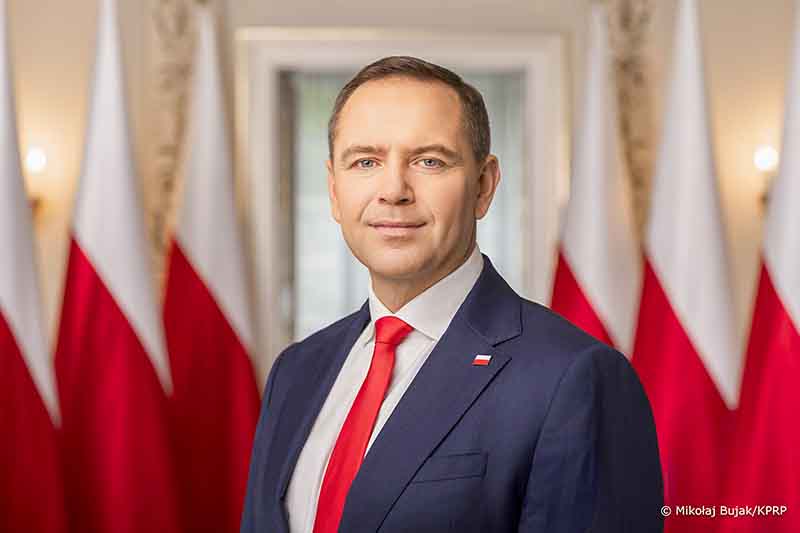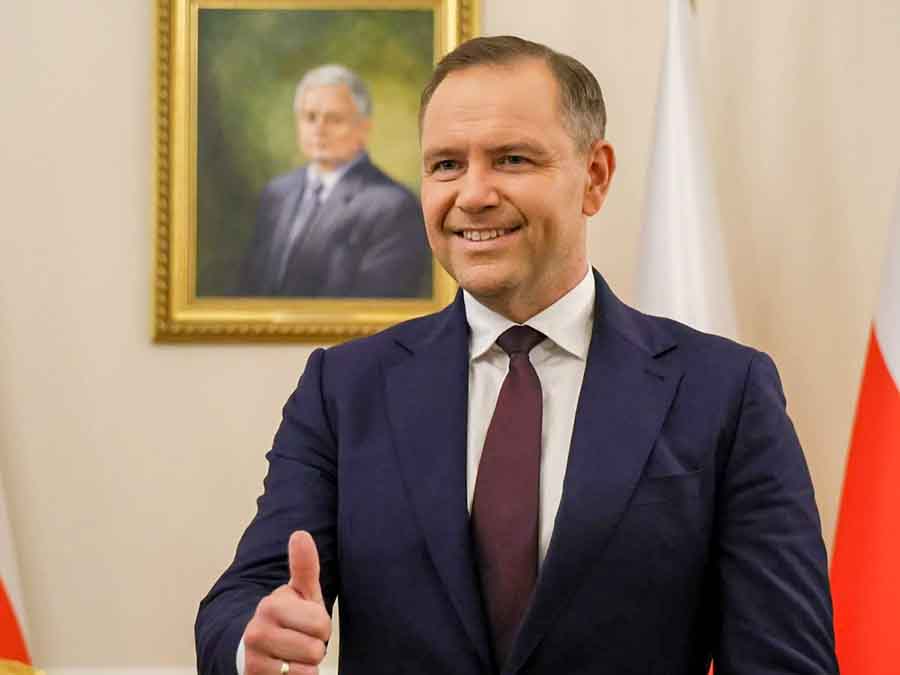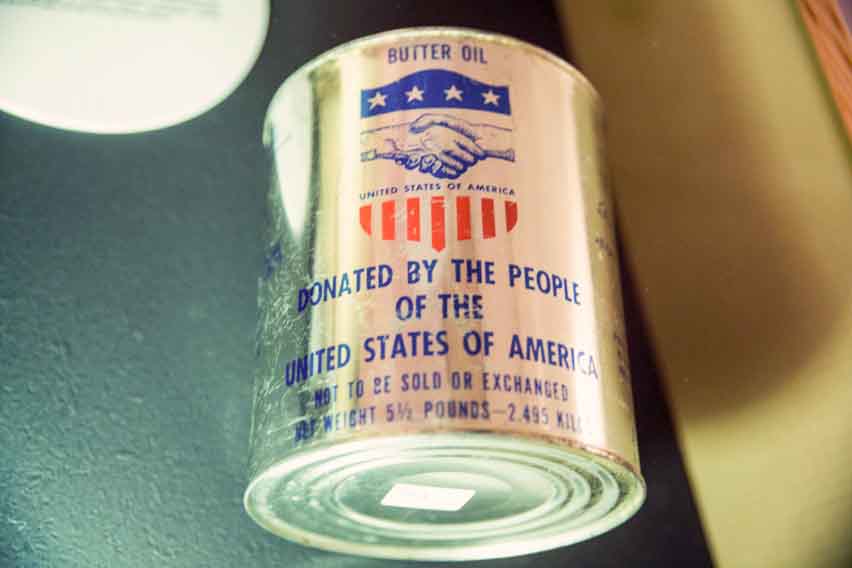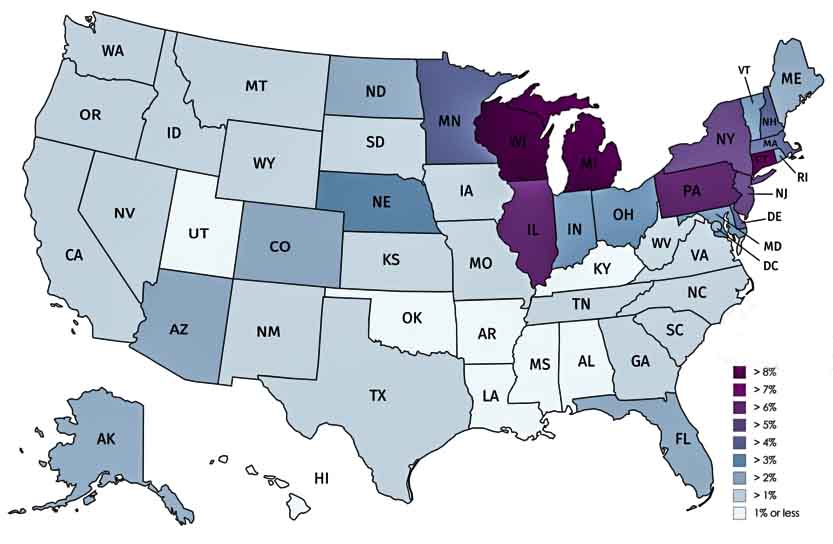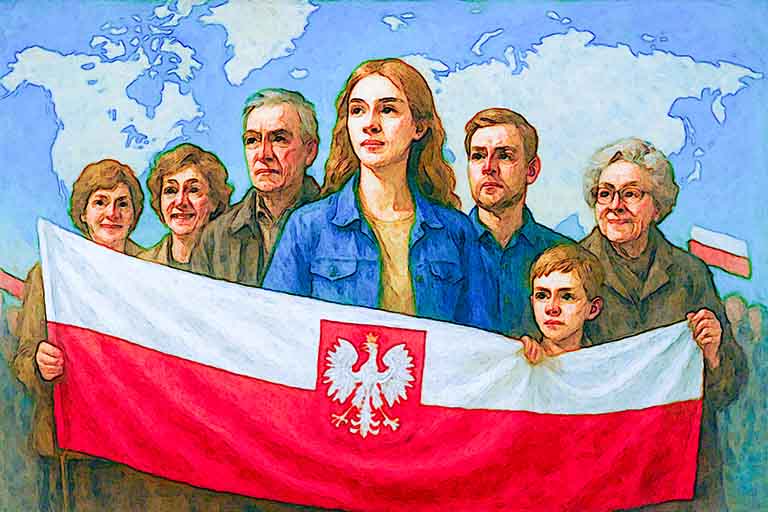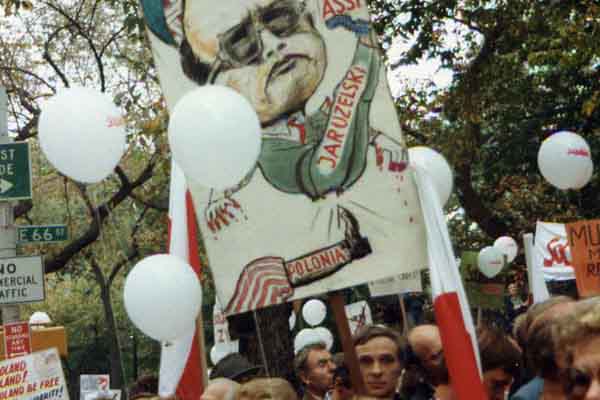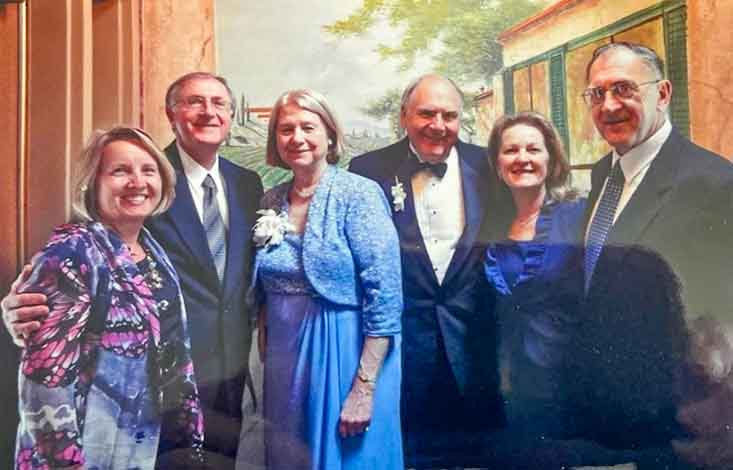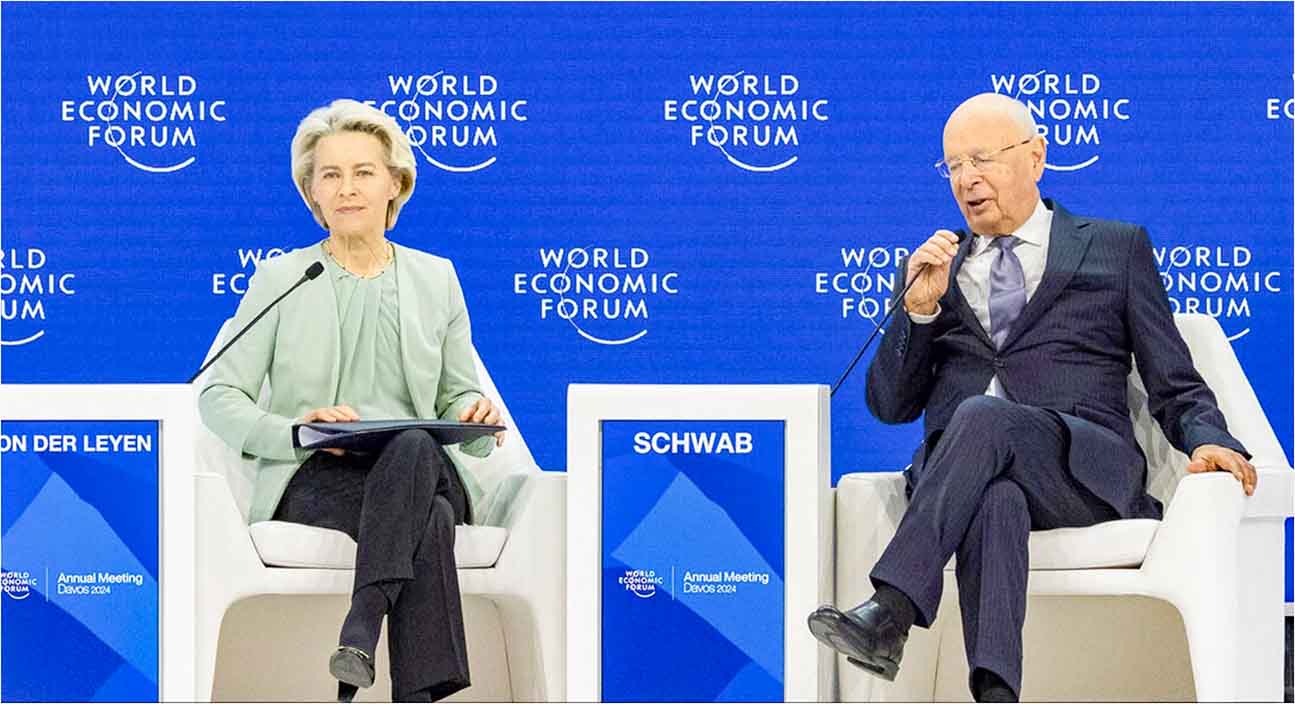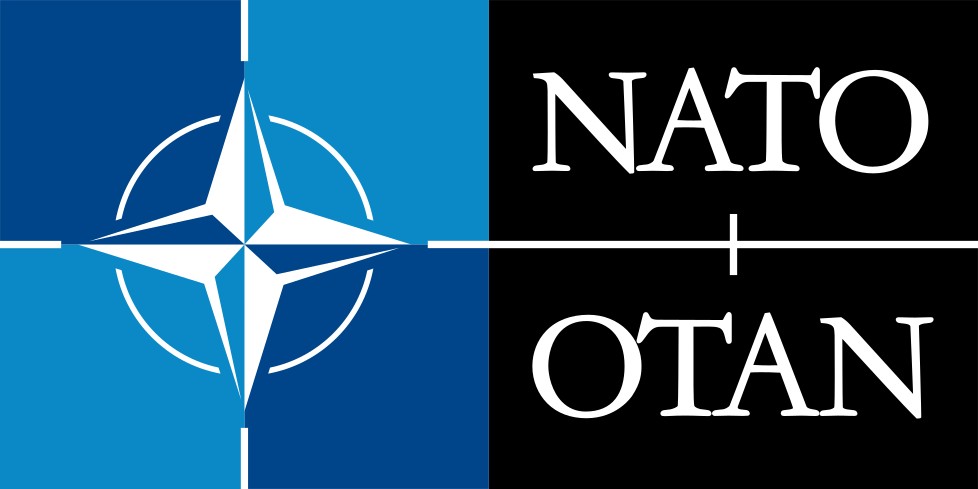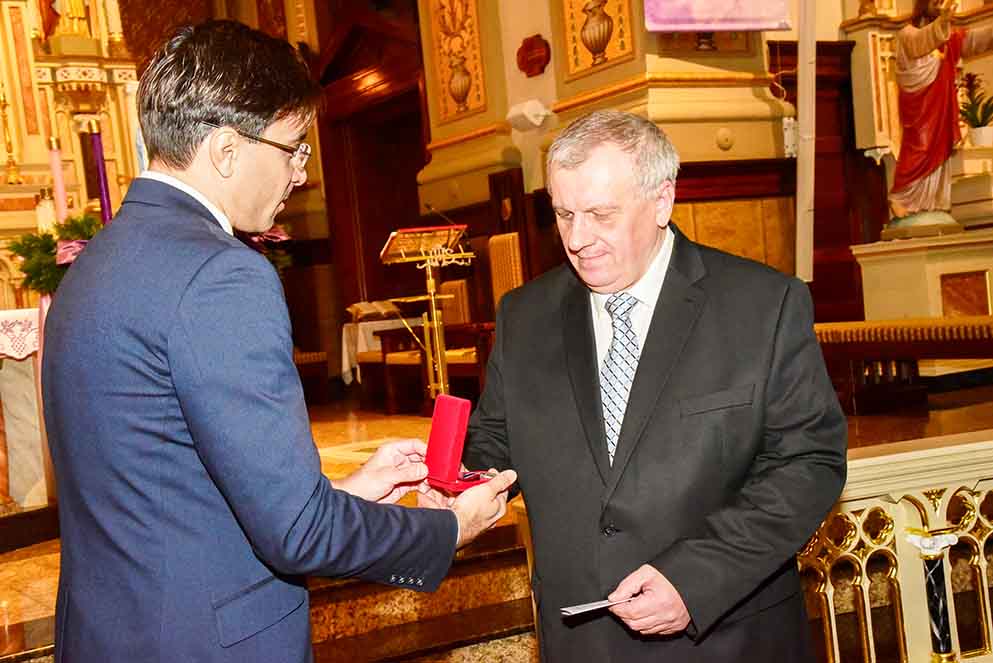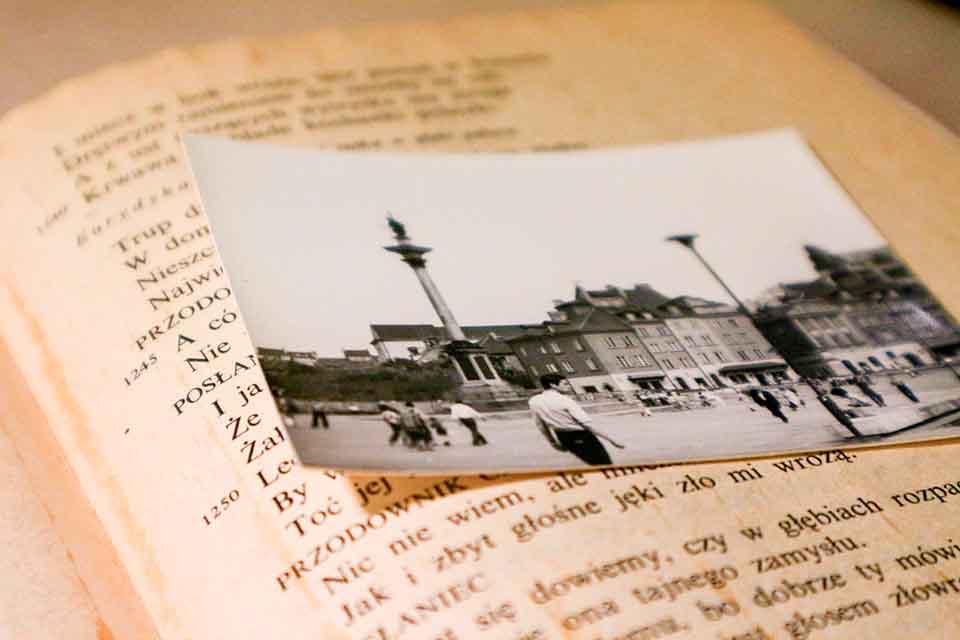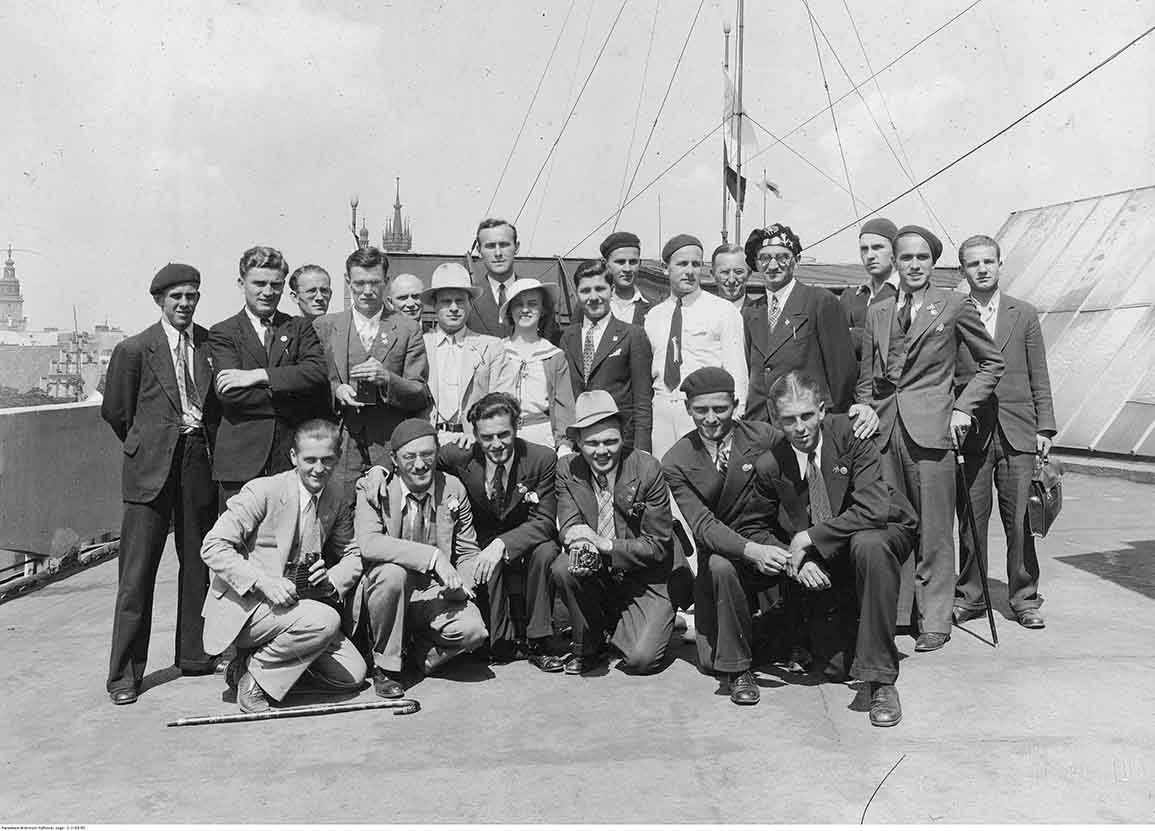Polish elites in Warsaw are increasingly using the term "conflicted Polonia", which is a narrative created in Warsaw by the "good change" elites to camouflage their incompetence in working with their diaspora. For 30 years, the incompetence of the elites in Warsaw from the left and right has led to the fact that they have not undertaken any form of political cooperation with the Polish community, implementing the Round Table decisions.
"Reaching an agreement", as the post-communist SLD (Sojusz Lewicy Demokratycznej, Democratic Left Alliance) activist Włodzimierz Czarzasty put it, between the representatives of the so-called constructive or democratic opposition and the communists at the Round Table in 1989 resulted among other things, in preventing the representation of patriotic, independence and Polish emigration circles from coming to power with the "quiet blessing" of the State Department. The chaos in the still active diaspora state structures operating in 4 time zones is complemented by the complete lack of leadership at the national level, which forces spontaneous actions of Polish organizations, as well as the lack of initiatives and coordination actions at the national level.

Illustration generated by AI (Source: gencraft.com) (Source: gencraft.com)
The Polish-American community, mindful of historical experience, does not accept the narrative "about a divided Polish community"! There are and will be differences of opinion among us, which is a completely normal phenomenon in the American democratic system and in the public debate.
Some History
After Poland gained independence in 1918, the state authorities of the Second Polish Republic pursued a policy favoring Polish emigration. In 1922, on the initiative of the Ministry of Foreign Affairs (MFA), the Cultural Protection Council was established, which included national institutions dealing with the Polish diaspora and representatives of ministries. In 1924, the Union for the Defense of the Western Borderlands put forward the idea of convening a congress of the Polish diaspora, and in 1925 the Organizing Committee of the Congress of Poles from Abroad was established, which began efforts to create an organization gathering Poles abroad.
However, the situation changed significantly after 1926, when the, so called, Sanation government came to power in Poland. As Professor Wojciech Skóra, a Polish historian from the Pomeranian University in Słupsk, writes, care for the Polish diaspora and Polish citizens in the USA has deteriorated compared to the 1920s. For instance, in 1922 there were 6 consular posts in the United States and in the 1930s only 3: in Chicago, Pittsburgh, and New York, as well as the embassy in Washington. In Poland's foreign trade, the United States was the third largest trading partner in 1935 (after Great Britain and Germany). For the largest economic power, inhabited by 126 million citizens (including almost 4 million Poles), this was definitely too few. Poland had the same number of consulates in Italy at that time. Probably the "somewhat instrumental" treatment of the American Polish community was the effect — to use diplomatic language — of Marshal Piłsudski's "improper treatment" of the volunteers from the "Blue Army".
The "Blue Army" Syndrome
The "Blue Army" syndrome has existed since 1919, and was first used by prof. Marek Rudnicki in his election campaign for the Senate in 2019. This is the reluctant attitude of the authorities in Poland towards the activities of the Polish American community. It is worth recalling that over 22,000 volunteers from America who — as the army from under the Giewont Mountain heard the playing of the famous golden horn from Wyspiański's "The Wedding" — came from overseas to fight for a free Poland.
General Haller's 70,000-strong "Blue Army" was, for those times, well-equipped and trained. It had 120 tanks, 98 planes, engineering troops, instructors, cavalry, artillery, communications troops, 7 field hospitals and very high soldier morale. The Hallerians brought 10,000 horses and ammunition with them to Poland. The further fate of the Blue Army is, unfortunately, the result of a cunning political game by Józef Piłsudski, trying to minimize the political influence of the Blue Army.
In June 1919, General Haller was deprived of command over the "Blues", which made his soldiers feel disappointed and cheated. The command staff of the Blue Army began to be replaced with loyal, legionary comrades-in-arms. The final straw came from the order of September 1, 1919, to completely disband the army. Individual formations became part of other national military units. Polish volunteers from the United States were demobilized, which irritated the Polish-American community. From March 1920 to March 1921, approximately 12 thousand "blue" Hallerians sailed to New York. The situation of the demobilized Blue Army soldiers was very bad. The ships' doctors took care of the Hallerians from the USA, emaciated and suffering from the beginnings of typhus, having been held in transit camps. The matter was discussed at the highest levels of American authorities. It was taken up by Julius Kahn, a congressman from California, and Congressman Kleczka from Milwaukee, Wisconsin.
The issue of the return of demobilized volunteers was raised in the House of Representatives at the beginning of 1920. This political mistake of the Marshal undermined the trust of the Polish American community in him for years, and after the May coup, it caused the Polish community to distrust the authorities in Warsaw. Today, Polonia feels exactly the same as the "Blue Soldiers". They have done their job, but no one even thanked them. To this day, their unburied remains turn white in western Ukraine.
Boundless Love for the Homeland
Despite this, the spectacular actions of Polish patriots in the USA, led by Ignacy Jan Paderewski, led to the establishment of the Herbert Hoover Institution and the Organization of the American Relief Effort in Poland (1919-1923). This American government organization, together with other organizations such as the Polish-American Children's Aid Committee, donated $250 million to Poland.
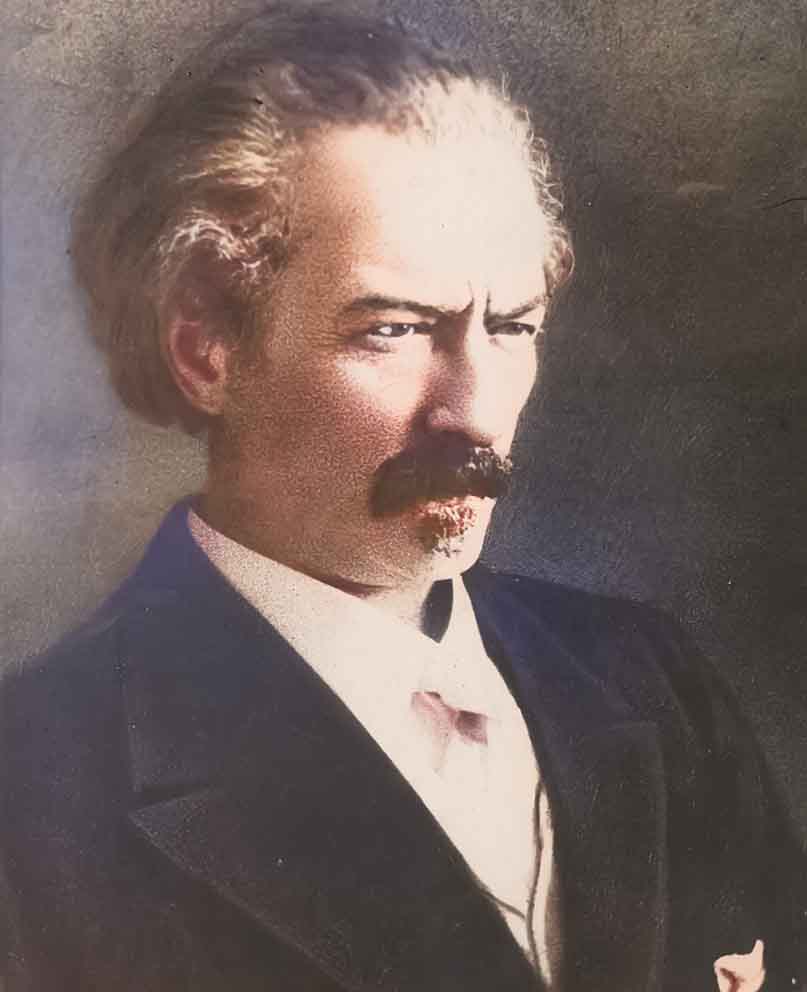
Ignacy Jan Paderewski in the 1920s. (Source: National Digital Archives. Color: A. Woźniewicz)
During Kuryer Polski's investigations, we managed to obtain the calculations of Dr. Aleksander Rytel (the famous founder of the Association of Polish Doctors in Chicago) about other financial collections for Poland in the first years after gaining independence. Amounts sent to Poland, based on the study by Dr. Aleksander Rytel, include: the National Fund, local collections, food parcels, money transfers, payments through consulates, money sent by banks, securities, and a Polish 6% loan.
The money brought by returning emigrants amounts to approximately USD 100 million. These data only concern the first years after Poland regained independence, but we must realize that a stream of dollars flowed to Poland until September 1939 and — according to World Bank data — a transfer of approximately 900 million dollars goes from the USA to Poland every year to this day . There is no data on Polish American investments in the Polish economy during this period. All these areas require thorough research, which became more and more difficult when Poland joined the European Union. They simply stopped dealing with the Polish diaspora.
The 2nd World Congress of Poles from Abroad and the Creation of Światpol
The congress began on August 5, 1934 in Warsaw, and the ceremonial closing took place on August 12, 1934 in Gdynia. It was attended by 171 people: 128 delegates from 20 countries, including 40 from the United States, 25 representatives of domestic institutions and 18 members of the Organizational Council of Poles from Abroad. A total of 11,000 people came to Poland. The Congress was accompanied by: 1st Rally of Polish Youth from Abroad — 3,000 people (the 2nd Rally took place in August 1935, combined with the Scouting Rally in Spała) and the 1st Sports Games for Poles from Abroad (381 players and their families who took part in trips around the country). During the ceremony at Wawel, the World Union of Poles from Abroad (Światpol) was established, with Władysław Raczkiewicz, Marshal of the Senate of the Republic of Poland, as its president.
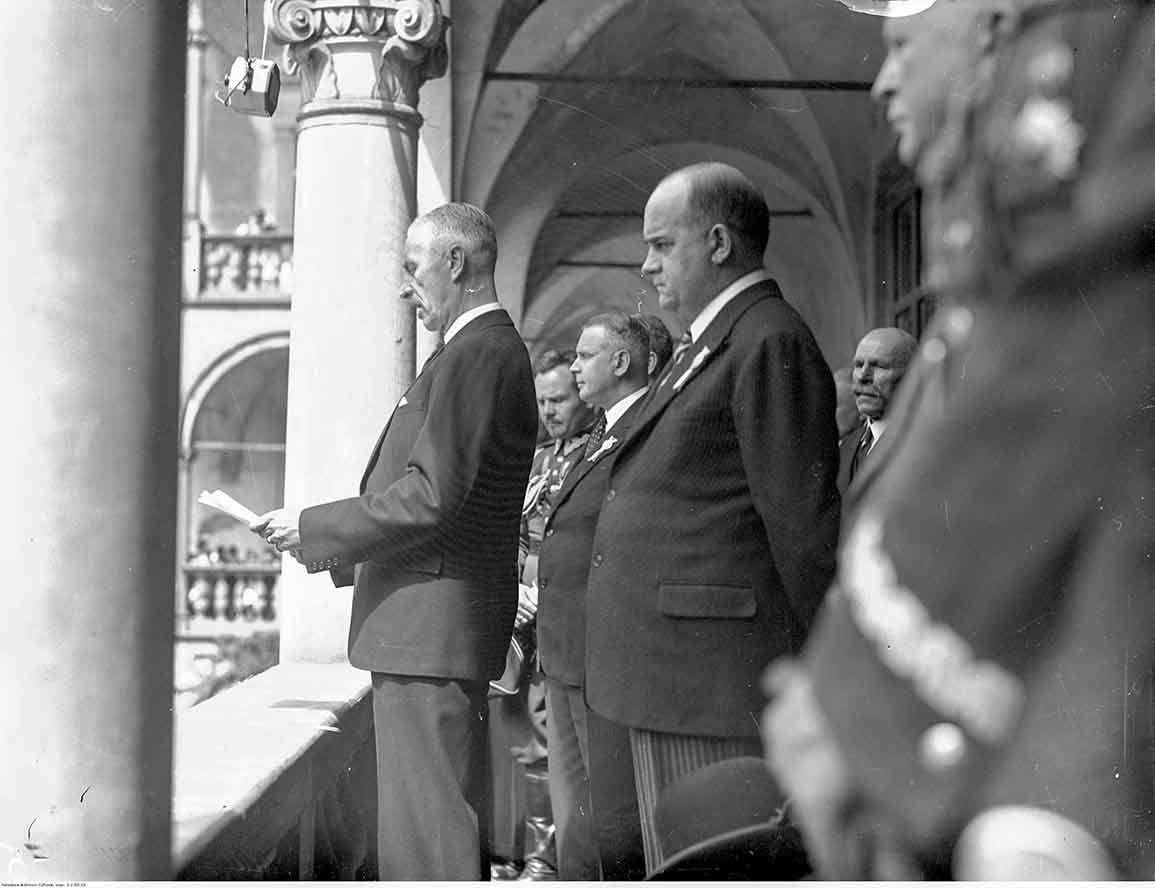
The President of the World Association of Poles Abroad, Marshal of the Senate Władysław Raczkiewicz (first from the left) delivers a speech to the congress participants gathered in the arcade courtyard of the Wawel Royal Castle. Visible include: vice-president of the World Association of Poles from Abroad Bronisław Hełczyński (second from the right), censor of the Polish National Association Franciszek Świetlik (first from the right, in striped trousers), Colonel Marian Bolesławicz (third from the right, in uniform). (Source: National Digital Archives)
The whole thing was managed by the Ministry of Foreign Affairs. In September 1933, Wiktor Tomir Drymmer became the head of the reorganized Personnel Department of the Ministry of Foreign Affairs. He was a man completely subordinated to Józef Piłsudski. Both the government's emigration policy and the personnel policy of the Ministry of Foreign Affairs converged into one hand. So, a plan to implement Polish foreign policy based on the Polish community was quickly created in Warsaw.
Everything would go perfectly, as planned at the Ministry of Foreign Affairs. All delegations were to join Światpol and create one global Polish organization to implement the foreign policy of the Sanation government. However, the dean of the law school at Marquette University in Milwaukee spoke out on this matter. What one of the then important leaders of the American Polish community said went down in history as a goal for many important figures of Polish life in the USA. Franciszek Świetlik, born in Milwaukee and a well-known lawyer in America, said then:
We are proud of our ancestors and we really want the young generation to retain love for everything Polish in their hearts, but at the same time we feel that we can serve Poland well by taking an active and creative part in American life and culture. The higher status we achieve in America as Americans, the more glory and benefit we will bring to the Polish nation from which our roots hail.
It is his definition of who American Poles are that is still valid today. We are Americans of Polish origin and although some of us have two passports, Polish and American, we can continue to serve Poland as our ancestors did in the USA.
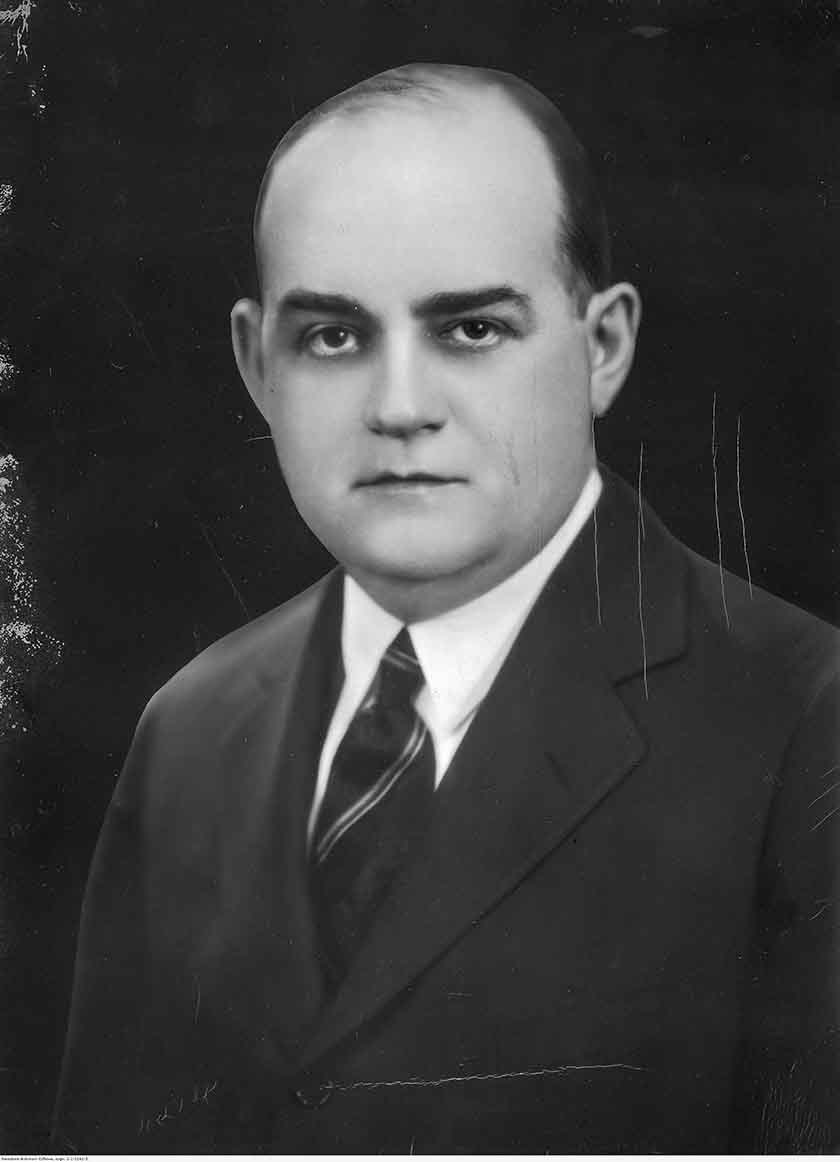
Franciszek Świetlik, portrait photo (Source: National Digital Archives)
Out of 40 delegates, no person or organization from the USA joined Światpol. Why...?
It was not only the most numerous faction of the Polish diaspora, but also the richest and one with a complicated social and professional structure. It was the only Polish diaspora with well-formed, strong elites. There was a large and influential professional intelligentsia and relatively wealthy merchants living there. There were many clergy, be it lay people, or monks.
According to the Consul General of the Republic of Poland in Chicago, Dr. Wacław Gawroński, the Polish diaspora in the USA numbered approximately 4 million in 1935 and had a very well-formed elite, including 250 journalists and 90 magazines, published in the United States and exerting a serious influence on the course of local life. Światpol was a creation of the government established as a result of the May coup, which prevented "American organizations" from joining it.
The Polish raison d'état and the Polish diaspora are American
The work of Ignacy Jan Paderewski, Jan Smulski (the first Polish millionaire in the USA), activists of the Falcon Associations, dr. Teofil Starzyński, and the Blue Army volunteers were continued by Polish emigrants in America after World War II.
The first president of the Polish American Congress, Karol Rozmarek, said these historic words:
Today, the defense of Poland is our most sacred and most important duty. It is up to us whether this defense will be just a patriotic phrase or a real defense, one for which the American Polish community will not have to be ashamed in the future.
These words have never lost their relevance. We are proud of activists such as Karol Rozmarek, Alojzy Mazewski, and hundreds of other patriots devoted to the Polish cause, working for Poland in various corners of the United States. We had a huge influence on American politics through such personalities as Senator Edmund Muskie, Congressman Klemens Zabłocki, Zbigniew Brzeziński and many others. It is prof. Oskar Halecki, an outstanding Polish historian, who introduced the concept of Central and Eastern Europe into the Western terminology.
In Milwaukee, in 1969, prof. Kamil Dziewanowski wrote a book, completely unknown in Poland, titled "Józef Piłsudski. European Federalist, 1918–1922”, published in English by Hoover Institution Press, Stanford University, in which he presented the idea of the Intermarium to the American elites.
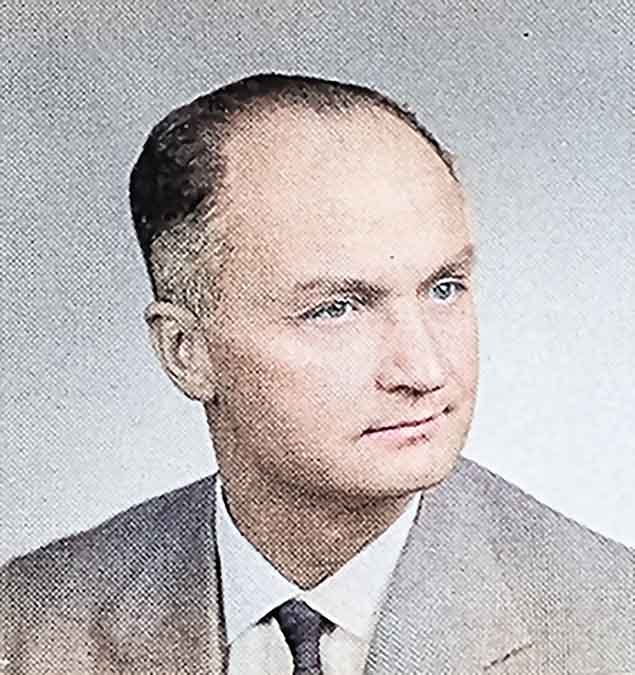
Marian Kamil Dziewanowski in 1960 (Colorization: A. Woźniewicz) (Source: Wikipedia)
Bringing about an investigation in the US Congress into the Katyn crime and finding the Soviets guilty of committing it was also the work of the Polish diaspora. This list of merits also includes the influence of the Polish American community in ensuring the participation of the USA in the recognition of Polish borders on the Oder and Neisse by the German state; ensuring US participation in the financing of Radio Free Europe; issuing an American postage stamp depicting the Polish White Eagle crowned with a Catholic cross for the millennium of the Polish state (1966).
The idea of Pax Polonica is presented in the books "The Armed Act of Polish Emigration in America — a Collection of Documents and Historical Materials" by Jerzy Walter from 1957 and "The Independence Ethos of the American Polonia" by Władysław Zachariasiewicz. In turn, Edmund Banasikowski is the author of the book "On the Call of the Vilnius Region" (Na zew Ziemi Wileńskiej, 1990). It is in this book that the author first mentions the legendary nurse "Inka" — Danuta Siedzikówna — and introduces the concept of "Steadfast Soldiers". In 1989, the Association of Polish Writers Abroad granted him its award. An emanation of Pax Polonica is "For Your Freedom Through Ours", a book by prof. Donald Pienkoś. In 2008, Professor Anna Cienciała published a book in the USA entitled "Katyń: a Crime Without Punishment".
The list of merits and brilliantly implemented ideas can go on for a long time. In addition, hundreds of millions of dollars were sent to Poland.
Articles by Polish scientists and radio programs in the Voice of America and Radio Free Europe fit perfectly into this narrative: about Katyn, about the Polish Armed Forces in the West, about the Home Army, the National Armed Forces, about the crimes of the Gulags, the Holocaust, about Polish traitors in the service of Moscow. and about many issues maintaining Polish national identity.
It was the next president of the KPA, Edward Moskal, who since 1994 lobbied with Americans of Polish descent and all friends of Poland to ensure that a petition signed by 9 million American citizens regarding Poland's admission to NATO reached the desks of the American administration. Today, on the 25th anniversary of Poland's accession to NATO, celebrations are held in Poland where the word "Polonia" is never uttered.
The Hopes after 1989
We know that after 1989, Polish emigration was not included in the political bloodstream of reborn Poland. This is evidenced by a document published by the Military Historical Office. The document comes from February 15, 1990. It presents the previously planned meeting of the President of the Republic of Poland in exile, Ryszard Kaczorowski, with the Prime Minister of the Republic of Poland in Warsaw, Tadeusz Mazowiecki, during his visit to Great Britain, which ultimately did not take place due to protocol reasons.
President Ryszard Kaczorowski, together with his government, proposed a meeting with the Polish delegation on February 12, 1990 in a separate room, after Prime Minister Mazowiecki's meeting with the London Polish community at the Polish Social and Cultural Center, with the ceremonial "entry of the President of the Republic of Poland" observed — which Prime Minister Mazowiecki regarded as degrading towards President Jaruzelski, his government, and the state.
During a meeting with the Polish community, Prime Minister Mazowiecki was asked a question: "Why are there still communists in his government and Wojciech Jaruzelski is the president?" Prime Minister Mazowiecki replied: "Thanks to these people, changes took place in Poland, and I am the Prime Minister." Thus, it was decided to adopt a transformation model consistent with the contract agreed upon at that time.
Today There Are 60 Million of Us.
Approximately 20 million people of Polish origin live outside Poland. These are people who left the country or were born outside Poland, but declare attachment to their Polish origins and ties with Polishness. The Polish diaspora is the fifth largest group in OECD countries.

Americans of Polish descent as of 2019, based on the American Community Survey conducted by the US Census Bureau. (Source: Wikipedia)
More than a quarter of Polish emigrants (28.8%) are people with higher education. Preliminary estimates say that in the United States alone there are over 800 Polish scientists at the "tenure" level. This is a serious group of people with enormous intellectual potential that cannot be underestimated. There is no serious research on how many Polish immigrants have both Polish and American education. According to my experience, this is a serious group numbering in the tens of thousands.
The financial resources of the American Polish community, according to data from the Polish and Slavic Credit Union, amount to savings of an average of $17,500 per person. And these are only the savings of a selected group of 100,000 Poles from the New York, New Jersey and Chicago areas. Just multiply these amounts to get the astronomical sum of $1,750,000,000. Let us remind you that the entire Polish diaspora in the USA is approximately 10 million people.
Every year, the Polish diaspora from the United States — not to mention those from other countries — sends approximately USD 900 million to Poland (World Bank data, prepared by the Migration Policy Institute). These funds are comparable to those being invested by foreign companies.
The Presence of the Polish Diaspora in the Polish Social Life
This is another example of the Polish state being blind in this matter. Over the last decades, many new organizations have been established to help the Polish community. However, it is worth asking how many representatives of the Polish diaspora are on the governing boards of these institutions?
You won't find any books about the Polish community in Polish bookstores. During my last visit to Poland, on Krakowskie Przedmieście and Nowy Świat streets in Warsaw, there were no books about the Polish diaspora in the bookstores. One of the ladies even said that no one asks for them. So, for 25 years, there has not been such a book about the 20 million members of the Polish nation.
When it comes to cinematography, the situation is even worse. The stereotype of a stupid simpleton is most often presented, as in "Happy New York", a film about the margins of Polish life in the diaspora. There are no films about Polonia's successes. The last film, with the character of a stupid artist from Chicago who can't do anything and has achieved nothing in his life, has the character of Ricky in the movie entitled "7 things you don't know about guys" directed by Kinga Lewińska, from 2016.
Back in the 1990s, Jan Nowak Jeziorański wrote: "Historians in Poland treat the role of the Polish diaspora more than marginally." He also gives the example of a book edited by Aleksander Gieysztor, "History of Poland", in which out of 720 pages only one is devoted to the subject of the Polish diaspora.
It's even worse in the press. Despite the efforts made by the Polish community, the Polish media are not interested in the affairs of the Polish diaspora. Even online media, despite being largely financed by the Polish community, do not produce any materials about the Polish emigration.
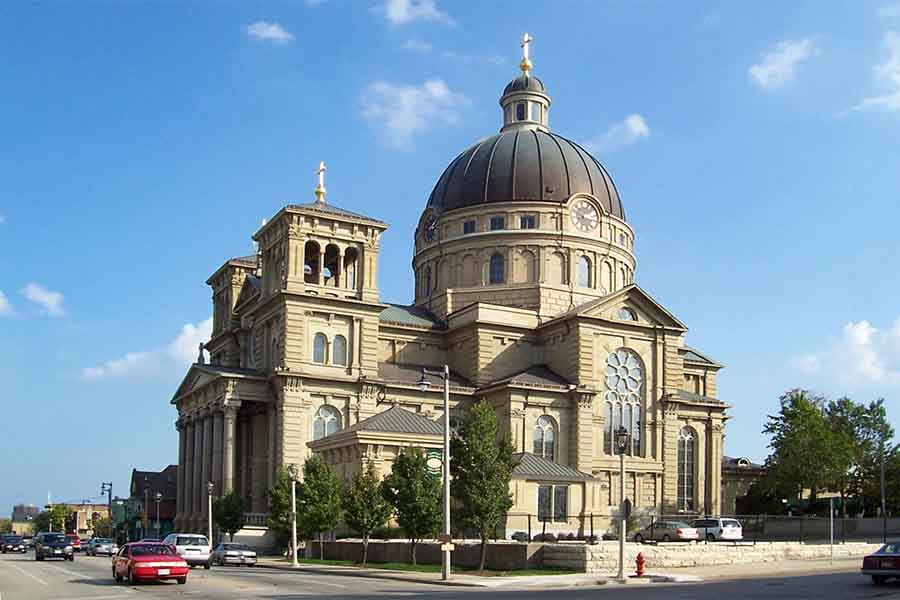
Historic Basilica of St. Josaphat seen from the corner of Kościuszko Park in Milwaukee, Wisconsin. (Source: Wikipedia)
As long as the elites in Warsaw treat us as "ignorant simpletons" and the essential expert on the Polish diaspora is a "Brother-in-law from Chicago", nothing will change in this matter. 95% of the Polish community in the USA does not speak Polish and their source of knowledge about Poland is the American media. It's time to prepare an offer for these strategically important members of the Polish nation.
The attitude of Polish elites towards Polish emigration was best expressed by a Polish journalist from Colorado, Eliza Sarnacka-Mahoney, who described these relations in Nowy Dziennik from New York as follows:
Poland, for its own convenience, insists on seeing Polonia primarily as a handy piggy bank that gives when you extend your hand, bows at the waist, and hosts you when you ask it to, and otherwise maintains the attitude of a disciplined schoolboy who knows his place. So deliberately that it prompts a cry to heaven for vengeance, and without precedent in the civilized world, the policy of stereotyping towards its own citizens living abroad is being practiced in the Vistula region. Despite the facts, they are constantly presented as a group of ignorant simpletons from Podhale or Podlasie regions (sorry, to both Podhale and Podlasie), which results in a distorted and destructive ignorance of Polish society about the true face and potential of the Polish diaspora. It prevents public debate on forms of cooperation with the Polish community abroad and negatively marks those who try to talk about the Polish diaspora differently.
The Infiltration of the Polish Diaspora
The patriotic actions of the Polish diaspora were not accepted by the authorities of the Polish People's Republic. On the contrary, already during World War II, Soviet intelligence delegated hundreds of agents to disintegrate the Polish community. Later, the Polish security service took over this primary task. The aim of the Polish and Soviet security services was to completely divide the patriotic Polish community and this state of affairs continues to this day, however, the role of the communist security service was taken over by other services.
After 1989, no comprehensive monograph on this subject was written, and observing the activities of the Institute of National Remembrance, one may get the impression that the work of surveying the Polish diaspora will probably not be carried out. Although individual studies appear, they will never reflect the scale and process of surveillance and infiltration of the Polish diaspora. The case of Adam Bąk is an example of how agents continue to be used to discredit one of the most important patrons of the Polish cause in the United States.
Even though the Polish People's Republic has been gone for over 30 years, many of the people "tasked" with destroying emigration still shine at receptions at Polish diplomatic missions, at parades and religious ceremonies, or even lead Polish parades in the largest of American cities.
The process of debunking the history of emigration based on the archival collections of the Institute of National Remembrance, including the so-called restricted collection, has stalled today. One gets the impression that historians like to focus on the early post-war years, but they avoid, for example, the period of the 1980s, which is also crucial for our present times and for building many careers, including those in emigration. A new question arises here: how many of these secret service agents were recruited into the American services and why does no one in Poland care so much about vetting the Polish diaspora?
Jeśman's letter.
I have known Voytek Jeśman for a decade. Although we do not always see eye-to-eye, we are united around issues that threaten our nation's sovereignty. One of such cases was the case of American Act 447. Then, together with Katarzyna Murawska, we appealed to the Polish media to promote the awareness of this threat in Poland.
Nowadays, I took part in a meeting of a large group of active Polish diaspora activists about the drafting of a letter addressed to the highest state authorities in Poland, the purpose of which was to express strong opposition to sending the Polish army to Ukraine. During the meeting, I said that the letter must be written in such a way as to express the concern of the Polish diaspora not to enter into war with Russia until Poland is actually attacked by Russia.
The letter was intended to remind us of the merits of the Polish diaspora in America and of the effective lobbying of the Polish diaspora in the process of Poland's accession to NATO. It also suggested the creation of an open fund for the development and reforms of the Polish Army, to which the Polish diaspora could send financial contributions. After my comments were dismissed, I thanked them and left the meeting.
However, I do express my outrage at the way the Polish media and some representatives of Polish diplomacy refer to this letter. Even though it is written for typically anti-war reasons, it does not exempt us from reflection on the preservation of the national substance. That's the minimum. Minister Mularczyk is the author of a report on Polish war losses during World War II, as the rebuilding of the Polish elites still continues to this day. Can we afford another such suicidal step? This letter serves as a warning against this. When will we Poles learn to think in a way in which Polish interests motivate our actions?
Conclusions
Does the Polish state see the problem that — to encourage the Polish diaspora to support the Polish cause abroad — a minimum intellectual effort and political will are needed, which is not present in Warsaw today? In twenty years, with the continuous lack of vision for cooperation with the Polish diaspora, the Polish community abroad will no longer exist. It will be assimilated. The most active activists at the moment are people in their 60s. The further course of the biological cycle is easy to predict.
If the Polish elites in Warsaw want to have a well-organized Polish community in the United States and around the world, they should:
- Implement the idea of including 1/3 of the Polish nation in the constitution. In total, there are 60 million Poles in the world and it is necessary to treat the 20 million Polish diaspora as an added value — an important part of the Polish nation.
- It is important to return full voting rights to the Polish diaspora, i.e. to restore voting by mail.
- It is important to create a special electoral district for the Polish diaspora and Poles from abroad, in which the Polish diaspora could elect their representatives to the Sejm and Senate.
- It is important to create an effective system for activating the Polish diaspora in the political life of the country of residence and in Poland.
- It is important to create an information system for Poles living in a given consular district.
- It is important to build the Polish diaspora through more efficient and active consular service. Promoting Polish passports for children born outside Poland, issuing the Pole's Card for citizens of other countries who are of Polish origin. One can't just sit behind a desk and wait for applicants — one has to act.
- It is high time to address the problem of repatriation of Poles and their descendants.
- 95% of the Polish community in the USA does not speak Polish and their source of knowledge about Poland is the American media. It's time to prepare an offer for this strategically important part of the Polish nation. It can be a powerful force in the implementation of Polish foreign policy.
- It is worth organizing professional debates on the relationship between Poland and the Polish diaspora. Shedding gallons of tears about the Polish diaspora is probably not the best way, though, especially when no one listens to the cry. It is probably worth having a vision of building a Polish community not only from the sea to the Tatra Mountains, but from "Chicago to Tobolsk", as master Jan Pietrzak sings.
- The American Polish community has a number of undeniable contributions to building independence. We would like this knowledge to reach Polish society one day. We want a proper historical narrative: just as "the First Cadre set out from Oleandry," volunteers for the Blue Army set off from Niagara-on-the-Lake — we also earned great merits in the fight for Independence. Our Polish heroes should also be given respect and their proper place in Polish history.








